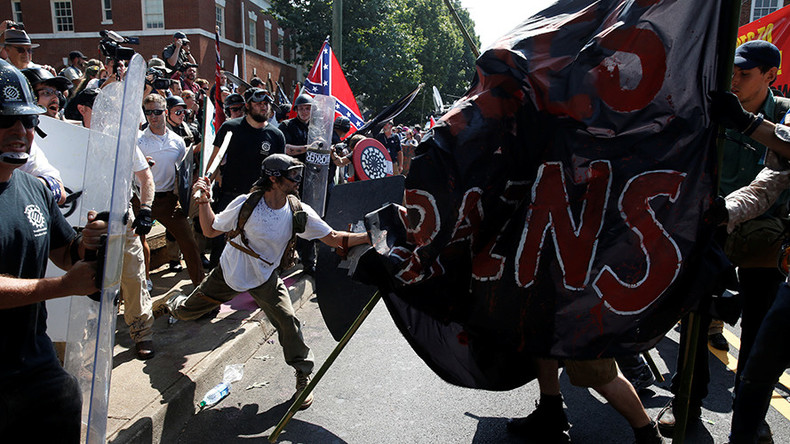Russian internet watchdog pulls plug on US white supremacist site The Daily Stormer

“The Daily Stormer website is propagating Neo-Nazi ideology, it is inciting racial, ethnic and other types of social strife. In connection with this Roskomnadzor has addressed the Ru-Center domain name registrar with a request to consider stopping providing domain name services to this site in the shortest time possible,” a statement from Roskomnadzor’s press service on Thursday reads.
For the future: report such sites in [.RU] to comrades from @roscomnadzor. They will help😎
— Sakhin Konstantin (@sahikon) August 17, 2017
The agency added in the statement that providing domain name services is done under article 5.7 of the rules of domain name registration in the domains .ru and .рф (the latter is for Cyrillic domain names).
Earlier this week, the world’s most popular domain name registrar, GoDaddy, said that it had given The Daily Stormer 24 hours to find another domain provider because of an article mocking Heather Heyer, the victim of a car attack that took place on Saturday during protests in Charlottesville, Virginia.
We informed The Daily Stormer that they have 24 hours to move the domain to another provider, as they have violated our terms of service.
— GoDaddy (@GoDaddy) August 14, 2017
The Daily Stormer then reregistered with the registrar belonging to Google, but their registration was quickly cancelled when Google reportedly discovered that the site was in violation of the internal rules of conduct. Other registrars also refused their services to The Daily Stormer, and Facebook announced that it would be blocking any links to its materials.
On Wednesday, CNN reported that The Daily Stormer was registered again – this time in the .ru domain. A representative of Ru-Center said that domain name registration with their company is done automatically and that it could be reversed if the site’s content violates Russian law.
DailyStormer.RU has survived less than one day, because Cloudflare and the Russians took it down. /2
— Anton Shekhovtsov (@A_SHEKH0VTS0V) August 17, 2017
Russia first introduced the law which requires extremist websites to be blocked in 2012.
According to the law, websites which promote extremism or other harmful information, like child pornography or advice on suicide, can be reported to the state internet watchdog Roskomnadzor, which analyzes each report and then decides whether or not to block access to the site.
The law also states that for websites which call for extremist activities, the prosecutor general must demand that Roskomnadzor take immediate action to limit public access to the sites.
All banned websites are put on a special blacklist available online (http://zapret-info.gov.ru). Internet service providers have access to the entire list, but ordinary users can only check whether a particular internet site has been banned.










